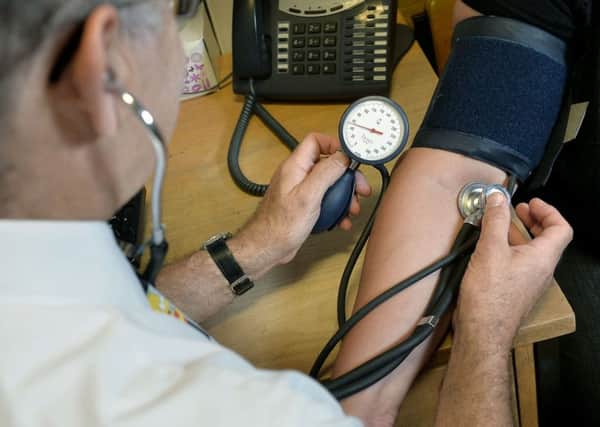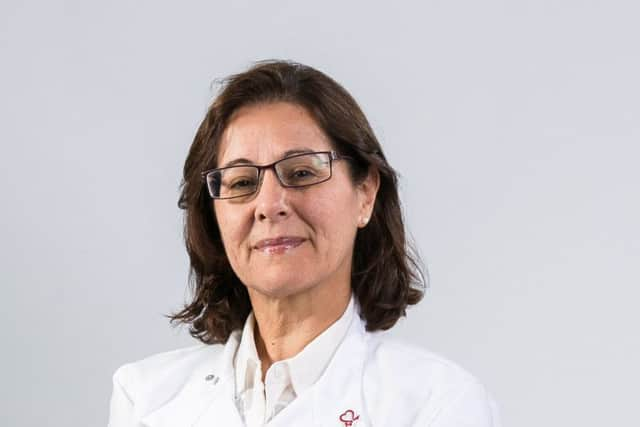Take steps to make sure that you don't become the silent killer's latest victim


Blood pressure, which is the force that drives blood along the arteries when the heart beats, is essential for providing every organ and tissue in the body with nutrients and oxygen. In healthy adults, the ideal blood pressure is less than 120 over 80 mmHg. At these levels, the risks of cardiovascular disease are very low. Hypertension is diagnosed when blood pressure is consistently higher than 140 over 90 mmHg. High blood pressure is dangerous because it adds extra strain to the heart and blood vessels and as the pressure continues to increase in the arteries the strain further increases, eventually resulting in heart failure, heart attack, kidney failure, stroke, eye problems, erectile dysfunction, peripheral artery disease and some forms of dementia. These conditions very often lead to poor quality of life, disabilities and premature death.
Hypertension is often referred to as “the silent killer” because there are no specific symptoms. Accordingly, patients may feel very well without knowing that they have dangerously high blood pressure. Unfortunately, the first time a person may become aware of the fact that they have hypertension is when they present at the hospital with a medical emergency, such as a stroke or heart attack. Therefore it is very important to have one’s blood pressure measured regularly by a GP, because if hypertension is diagnosed, it is essential that it is treated properly.
Advertisement
Hide AdAdvertisement
Hide AdThere are many factors that increase the risk of developing hypertension, most of which are modifiable relating to lifestyle, such as lack of exercise, high dietary salt intake, unhealthy diet, excess alcohol consumption, being overweight and obesity. Other factors that predispose to hypertension that are not modifiable include ageing, post menopause in women, ethnic origin and family history. Hence, people who are older, male, postmenopausal women, of Asian or African descent with a strong family history of hypertension and who have an unhealthy lifestyle are at particularly high risk of hypertension and its complications. Interestingly, while we know a lot about the risk factors that predispose to hypertension, the exact causes of high blood pressure remain a mystery.


Investigating the mechanisms and aetiology of hypertension are major areas of research worldwide. By better understanding the causes and processes that underpin high blood pressure, we would be well placed to better treat the condition in a disease-specific manner and thereby reduce the enormous burden of hypertension complications.
Here in the UK, hypertension and cardiovascular disease are major research priorities. In Scotland, we are very fortunate to have outstanding expertise in the field, at the population, clinical and basic science levels. For many years I have been exploring the role of the vascular system in the development of hypertension. My research, conducted at the British Heart Foundation Centre of Research Excellence in the Institute of Cardiovascular and Medical Sciences at the University of Glasgow, focuses on understanding how high blood pressure causes injury to small blood vessels and how damaged vessels in turn cause an increase in blood pressure. This is a vicious cycle where high blood pressure causes vascular injury that further increases blood pressure. The reason why it is so important to understand these processes is because ultimately it is injury and weakness of small arteries that causes disease of the heart, brain, kidneys and limbs, leading to organ failure. My research, funded in large part by the BHF, has identified some critical molecules and proteins that are linked to free radicals that are harmful to cells in arteries. If we could target these molecules in a very specific manner we may be able to prevent arterial injury and restore vascular health.
While hypertension scientists and clinicians continue to carry out research to unravel the mysteries underlying the causes of high blood pressure, a lot can be done now to prevent and treat hypertension: A major priority is to live a healthy lifestyle – eat a balanced healthy diet, reduce salt intake, decrease alcohol consumption, increase exercise, maintain a healthy body weight and stop smoking. Studies have clearly shown that these practices lead to lowering of blood pressure and a significant reduction in stroke and heart disease, by as much as 25-40 per cent. If your doctor has prescribed drugs to treat your hypertension, it is critical that you follow the prescribing instructions and never miss a day of taking your tablets. Clinical investigations have demonstrated that patients who adopt a healthy lifestyle and who are also taking hypertension drugs have better control and often require fewer tablets than if healthy lifestyle changes are not followed. Its also good to “know your numbers” by measuring your blood pressure at home with a home device. Keeping a blood pressure diary that is shared with your doctor will help him/her prescribe the most appropriate therapy for you. If you do not know your blood pressure numbers now is the time to visit your GP for a blood pressure check.
Hypertension is not only a growing pubic health problem in Scotland and the UK, it is now recognised by the World Health Organisation as the major contributor to the burden of non-communicable chronic diseases in the world. Only through more research to better understand what underlies high blood pressure will we be able to better diagnose and treat hypertension and thereby prevent the devastating cardiovascular complications of this condition.
Professor Rhian M Touyz MBBCh, MSc(Med), PhD, FRCP, FRSE, FAHA., British Heart Foundation Chair of Cardiovascular Medicine